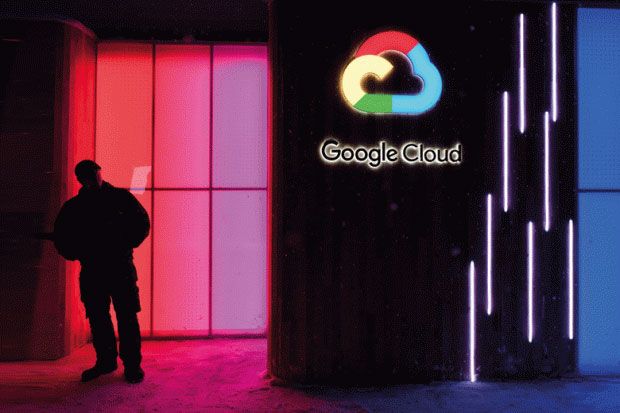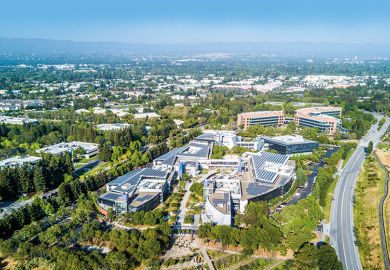The European Union could force big technology platforms like Google and Facebook to open up their data to researchers after complaints that a lack of access means that academics are in the dark about the real impact of online phenomena such as “fake news”.
As part of its campaign against disinformation online, the European Commission has put out a tender to create the European Digital Media Observatory, which aims to “ensure secure access to platforms’ data for academic researchers working to better understand disinformation”.
The move has been welcomed by social scientists frustrated that they currently cannot sufficiently get to grips with what is happening online.
“Nobody really has access to social media data to do the research that needs to be done,” said Ravi Vatrapu, spokesman for the commission’s “sounding board” of advisers on how to tackle disinformation. “We’re like cancer researchers trying to determine the relationship between cancer and smoking, but big tobacco owns all the patient data.”
Professor Vatrapu, who is also director of the Centre for Business Data Analytics at Copenhagen Business School, said that it was still unclear whether “fake news” had any impact on the outcome of the 2016 US presidential election, “because we don’t have the data”.
The tender says that the observatory will “integrate state of the art tools and services for academic research activities” including the ability to track and visualise how disinformation travels through social media.
Universities have been trying to create similar research tools, said Professor Vatrapu, but a move by a non-academic institution to set one up is new.
Anja Bechmann, director of the Datalab Center for Digital Social Research at Aarhus University in Denmark, said she wanted to research whether disinformation impacts voting patterns. But with current levels of access, “that’s very tricky right now”, she said.
“That’s what annoys researchers: the data is available, but only to private companies,” she said.
Setting up the observatory was “a much needed signal to send that we have to insist on this. And the only [insistence on this is coming from] Europe,” she said.
Whether the technology firms will cooperate to open up their data is unclear. But the commission has said it could introduce regulation to combat what it sees as the threat of disinformation.
The EU would need “special arrangements with the relevant platforms” to access data – perhaps limited to public information like open Facebook pages – or to bring in regulations that “require the platforms to provide data access for clearly defined public-interest research purposes”, said Axel Bruns, a professor of media and communication at the Queensland University of Technology and president of the Association of Internet Researchers.
“The observatory tender itself, as well as other regulatory measures against platforms like Facebook and Google in recent months, show that the EU isn’t afraid to pick a fight with these platforms,” he said.
Brussels has grown increasingly concerned about online disinformation, and in October 2018, platforms including Facebook and Google – which owns the video-sharing platform YouTube – signed up to an EU code of practice, in which they promise to share “privacy protected datasets” as well as undertake joint research and partner with “academics and civil society organisations if relevant and possible”.
However, in January this year, the EU said “additional action” was needed by the platforms to “allow appropriate access to platforms’ data for research purposes”.
One stumbling block, however, is user privacy. Social scientists raised concerns last year that Facebook was further stifling research after it tightened up data access in the wake of the Cambridge Analytica scandal, in which a political consultancy was found to have harvested the data of millions of unwitting Facebook users through collaboration with a University of Cambridge academic.
A much-heralded partnership announced last year between Facebook and academic researchers to understand the impact of social media on democracy, Social Science One, has recently run into problems, with the company reportedly unable to disclose all of the information it promised owing to privacy concerns.
A Facebook spokeswoman said the project had “already begun to allow researchers to answer important questions”.
“We have built a first of its kind data-sharing infrastructure to provide researchers access to Facebook data. We remain committed to advancing this; we are also committed to ensuring that we provide data in a secure manner that protects people’s privacy,” she said. Google did not reply to a request for comment in time for Times Higher Education’s deadline.
Professor Vatrapu said he thought privacy concerns were a “convenient” excuse, however. “They claim they really can’t trust researchers,” he said, but it meant that “there’s nothing researchers can do” to get the data they need to understand what was happening online.
POSTSCRIPT:
Print headline: EU seeks research access to big tech’s data
Register to continue
Why register?
- Registration is free and only takes a moment
- Once registered, you can read 3 articles a month
- Sign up for our newsletter
Subscribe
Or subscribe for unlimited access to:
- Unlimited access to news, views, insights & reviews
- Digital editions
- Digital access to THE’s university and college rankings analysis
Already registered or a current subscriber?








